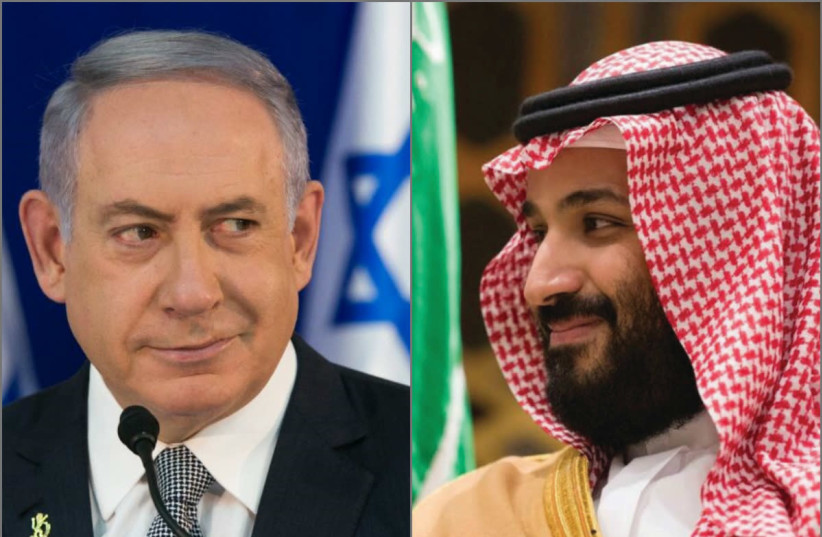A normalization deal with Saudi Arabia won’t harm Israeli security, a high-level official told reporters amid fears about demand from Riyadh that any agreement must include US support for a civilian nuclear program that includes uranium enrichment.
In Cyprus on Monday, Prime Minister Benjamin Netanyahu spoke publicly about the possibility of a deal, as he delivered remarks to the media during a joint press event with Cypriot President Nikos Christodoulides and Greek Prime Minister Kyriakos.
“There is now the possibility that we might have the expansion of the Abraham Accords to normalization with Saudi Arabia,” Netanyahu said.
The deal itself would primarily be between Washington and Riyadh but it would involve a normalization deal with Israel.
Last week, Defense Minister Yoav Gallant met with top US diplomatic officials to encourage progress in widening the normalization wave with Sunni countries, like Saudi Arabia, but also emphasizing the need to maintain Israeli qualitative military superiority.

Gallant also passed on a document put together during recent ongoing meetings of the defense establishment's security chiefs and their top experts to clarify the exact details of what kind of nuclear program the US might offer the Saudis and how they would prevent such a civilian nuclear program from evolving into a military one.
Kan News confirmed that Mossad Director Davdi Barnea and IDF Chief-of-Staff (Lt.-Gen.) Herzvi Halevi weighed in on that document.
The defense minister met with US National Security Council Coordinator for the Middle East and North Africa Brett McGurk, US Assistant Secretary of State for Near Eastern Affairs Barbara Leaf, and US Ambassador to the United Nations Linda Thomas-Greenfield.
Both McGurk and Leaf are expected to travel to Saudi Arabia this week.
In Cyprus, an Israeli official told reporters that typically speaking, moves in advance of a normalization deal would be kept in total secrecy.
Talks to arrive at the Abraham Accords under which Israel normalized ties with four Arab countries — the United Arab Emirates, Bahrain, Morocco, and Sudan — were held in secret for three years, the official said. Only three to four people knew about it, the official added.
Saudi deal progress is different from other normalization processes
The move toward a Saudi deal is very different, the official stated, adding that “the Americans are very involved in it.”
The official downplayed reports that Israel would have to make significant concessions to the Palestinians for a normalization deal with Saudi Arabia.
“The Saudis are more interested in a defense pact with the US than in the Palestinian issue,” the official said.
Supporters of the deal have argued that there is a time limit for achieving a deal, given that it would be easiest to do so with the current Congress rather than the one that might come into office in the aftermath of the 2024 election. The deal would need the approval of 67 out of the 100 senators, the official explained.
Moves toward a trilateral US, Israeli, and Saudi deal, come amid a period of high tensions between Jerusalem and Washington over issues relating to the government’s judicial reform program and extremist statements by some of its ministers.
Although US President Joe Biden has been friends with Netanyahu for 40 years, he did not invite Netanyahu to the White House in the aftermath of his formation of a new government at the end of December. Traditionally, US presidents host an Israeli prime minister after an election.
The Israeli official said that Netanyahu has been in the White House more times than any other foreign leader and that there will be a meeting between the two leaders.
“There are common interests, one of the main ones being peace with Saudi Arabia,” the official said.
